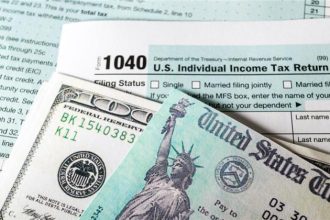If you’re struggling to keep up with your credit card bills and feel like your debt is growing faster than you can pay it off, you’re not alone. Millions of Americans face the burden of high-interest revolving debt, making it difficult to regain financial stability. The good news? American Consumer Credit Counseling (ACCC) is here to help you with strategies to pay off credit cards. Knowing them, you can take back control of your finances and stop the cycle of debt.
At (ACCC), we help individuals like you pay off credit cards through affordable debt management plans and expert financial guidance. Here’s how you can start tackling your credit card debt.

5 Signs Your Credit Card Debt is Out of Control
Before you can fix the problem, it’s important to recognize the warning signs of spiraling debt. If you relate to any of these, it’s time to take action:
- Only Making Minimum Payments – Minimum payments barely reduce your balance because most of your payment goes toward interest.
- Your Credit Card Balances Keep Growing – If your debt is increasing even after making payments, interest and late fees may be adding up faster than you can pay them off. You are only adding to to your debt pile and will continue the struggle to get rid of credit card debt.
- Relying on Credit for Necessities – Using credit cards to cover rent, groceries, or utility bills is a red flag that your spending is outpacing your income. If your income does not cover your necessities that means there is a serious mismanagement of your budgets.
- Maxing Out Credit Limits – When your credit cards are constantly near their limit, it can hurt your credit score and make it harder to qualify for better financial options.
- You Feel Overwhelmed or Stressed About Money – If thinking about your debt causes anxiety or sleepless nights, it’s time to seek help. This is no way a good place to be both for your financial health and mental health.
If you recognize these warning signs, it’s important that you create a plan to pay off credit card bills before the situation worsens.
Strategies to Pay Off Credit Cards
1. Stop Relying on Credit Cards
One of the first steps is breaking the cycle of credit dependency. Try switching to cash or a debit card to cover daily expenses while you work on paying off existing balances. You can start using a budgeting methods such as the envelop method to restrict yourself from overspending. Allocating money to pay off more than the minimum on your credit cards is also an important step in the road to debt recovery.
2. Prioritize Debt Repayment
There are two common strategies to pay off credit cards:
- Debt Snowball Method – Pay off the smallest debt first while making minimum payments on others. Once the smallest is cleared, move on to the next.
- Debt Avalanche Method – Focus on paying off the highest-interest debt first to save on interest costs over time.
The method you choose depends on your financial situation and the disposable income. Therefore, crafting a workable budget that takes into account all of your income, expenses and debts is a crucial step in the process.
3. Lower Your Interest Rates
High interest rates can keep you trapped in debt for years. Consider:
- Negotiating with creditors to reduce your rate.
- Transferring balances to a lower-interest card (if you can afford the transfer fees).
- Enrolling in a debt management plan (DMP) with ACCC, which consolidates your payments into one affordable monthly payment and reduces interest rates. Along with these benefits, ACCC is also committed to guide you through your debt relief journey with financial education budgeting guidelines as well as consumer credit counseling.
4. Increase Your Monthly Payments
Paying more than the minimum can significantly reduce your repayment time and save you thousands in interest. Even an extra $50 or $100 per month can make a big difference. In order to do so, you must make amends to your existing spending behaviors actively.
5. Build a Realistic Budget
A solid budget ensures you can cover essentials while leaving room for debt payments. Focus on cutting unnecessary expenses and increasing savings so you don’t have to rely on credit in emergencies. Working towards building an emergency fund is also a crucial step of stress free financial management.
6. Seek Professional Help
If your debt feels unmanageable, don’t wait until it’s too late. Nonprofit credit counseling agencies such as ACCC can help you develop a customized plan to pay off credit card debt and regain financial stability. Prioritize looking for ways to pay off credit cards more effectively.
Take the First Step Today
If you’re struggling to pay off debt, ACCC can help. Schedule a free credit counseling session with us today.
Read the full article here
















